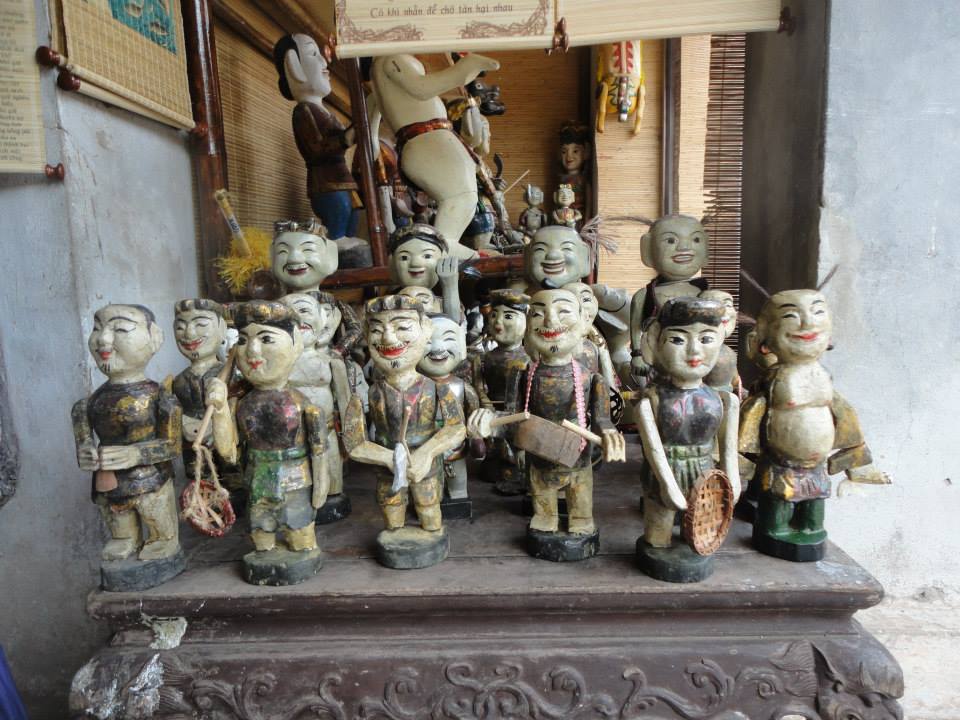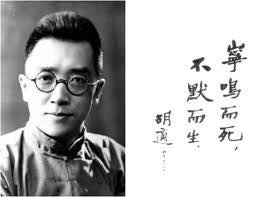My Language Learning Autobiograph 我的语言习得黄金史
I grew up in a family that spoke four languages. Even though these languages are all considered to be Chinese dialects due to the political policies of China, they are four distinct languages when approached from the field of linguistics. These four languages are Hoklo, Hakka, Cantonese, and Mandarin; I used to wonder which language I should consider my mother tongue while exploring phonology during a college course. The professor, Dr. Xin, told me that he considered my mother tongue to be Hoklo after asking me a series of questions: “What language does your mother speak?” “What language do your grandparents speak to you?”, “What language do you use to communicate with your siblings?”, and so on. My eagerness to study learning languages and linguistics was further ignited by Dr. Xin’s phonology class. In this class, centered on ancient Chinese phonology, I learned a variety of field research methods in recording and describing different languages. I was impressed by the language-related cultures of Asia, past and present, and the linguistic connections between different languages. I believe that Dr. Xin opened my eyes to a new world of language. Dr. Xin inspired me and his class allowed me to better understand linguistics. Due to his teaching, I pursued studies in English, Korean, Japanese, French, and German.
一个月黑风高之后的天有异象之饷午,我出生在一个讲4种语言的家庭。即使,在今日之中国,这只是4种方言。但是,在语言学的定义里,这是4种有着不同语法,词汇,和互相不能沟通的实实在在的4种语言。他们是:学佬(闽南语的一支),客家,白话(俗称“广东话”),和普通话。
(Picture took in 2013, Hanoi,Vietnam)
上了辛老师(辛世彪先生)的《语言学概论》和《语言学史》两门课之后,我开始对语言学着迷了,做作业的时候,我常常怀疑自己的母语到底是哪个。因为,各种田野调查都是要知道自己的语言背景的。辛老师问了一系列的问题,比如:“你妈妈在家跟你说什么话?”、“你爷爷奶奶跟你说什么话?”、“你跟你兄弟姐妹之间说什么话?”等等。辛老师后来确定,我的母语是学佬。回想起来,真正为我打开语言学之门的是辛老师,他是博士生导师,也是一名博士后。他让我明白中国语言,甚至世界语言的变迁史,以及各语种之间的联系和迁移。语言的变迁常常牵扯到文化和人文生活的变迁,因此,因为辛老师,我不只爱上语言学,我还花心地重新爱上了文化和人类学。也正是因为这样,我也学习了英文,韩文,日文,法文,和德文。
(Picture took in 2016, Boston)
I grew up speaking Hoklo, Hakka, Cantonese, and Mandarin with friends and family. However, I realize that there are some proficiency differences between my four mother languages. Due to the fact that Hoklo used to be the dominant language when I was young, I am very proud of speaking Hoklo. I speak Hoklo with former classmates, friends, my families, and other Hoklo people in my daily life. Furthermore, Hoklo is the primary language spoken by my mother’s original family and my grandfather’s original family. Therefore, my language proficiency in Hoklo is C2, a proficient user of listening and speaking. In terms of writing and reading Hoklo, however, I lack the proficiency that I have in writing and reading some of my other mother tongues. My region in China does not use the Hoklo character set because the country mandates learning the official language of the nation, Mandarin, in school. However, Taiwanese people have maintained the Hoklo characters because Taiwanese is a dialect of Hoklo. It is fun to know Hoklo because it allows me to mirror a Taiwanese accent when speaking Mandarin. It is enlightening studying the similarities of Hoklo to other languages in South Asia. Though Vietnam used Chinese characters until the French colonization, I did not know Vietnamese was so similar to Hoklo until I traveled there a few years ago.
在我成长的过程中,我用学佬,客家,白话,和普通话跟朋友和家人交流。即使那是年纪尚小,但是我还是意识到一些触心的不同。比如,学佬话在当时我住的那个地方里是主要的语言,我也因为自己是讲学佬的而感到无比自豪。我在学校常常跟同学说学佬,在家也说学佬,出去玩买东西吃,也说学佬。
有一个很值得提起的现象就是,说学佬的人更加愿意用客家跟讲客家话的人交流。而讲客家话的人,更不愿意主动用学佬跟讲学佬话的人交流。我猜测其主要原因是因为,学佬话的人更加自信而且社会地位比较高,讲客家话的人比较内敛。因此,会讲学佬话的人往往能说一些客家话。但是大部分说客家话的人不会说学佬。另外,说学佬话的人在当地是比较富裕,性格也比较坚强和锋利,常常看见吸白粉的是说学佬的,做走私也是讲学佬的,滋事打架的,也是说学佬的。
我母亲的原始家庭,也就是我的外公外婆都是说学佬的。而我爷爷的家庭也是说学佬的。只是我奶奶有点特殊,她是香港人,本应该说白话,但是因为二战,日本仔打到香港,在她4岁的时候,被一个伯父带到大陆,卖给了一家讲客家话的人家。所以,她习惯了跟她奶奶讲客家话,从而也跟她的孩子和我爷爷说客家话。
因此,我是一个学佬话的第一语言使用者。但是,只是存在于听、说方面。至于读、写,我从来没有接触过,我不知道我能不能认得几个字。学佬话,其实是闽南语的一支。所以,我猜,应该在香港和台湾会有一些相关学佬话/闽南语的读写研究。
有趣的是,好几年前在越南旅游的时候,发现越南话其实很近学佬发音。即使他们因为法国入侵而摒弃了汉字,他们的音还是保存着学佬发音。你常常可以听他们的名字,猜出是哪个汉字。
(Picture took in 2014, China)
I also speak Hakka as a mother tongue. I am proficient in understanding and speaking Hakka, but not writing. My grandmother’s original family is from Hong Kong, where the majority of the population speaks Cantonese. However, my grandmother was adopted by a Hakka family when she was around four or five years old. She speaks Cantonese, Hakka, and Hoklo daily. She speaks Hakka to her children and to my grandfather. She uses Hoklo to communicate with her Hoklo-speaking friends, my Hoklo families (relatives on my grandfather’s side), and my mother. She speaks Cantonese sometimes as well, living in a region with a significant Cantonese-speaking population. Thus, my childhood included Hakka input from my families because I lived with my grandparents and their four children in a 45-square-meter house. I also continue to speak Hakka to my Hakka friends who grew up with me. When I went to college on Hainan island, I met people from around the world. I initially realized that the pronunciation of numbers in Korean and Japanese are extremely similar to Hakka, and that numerous pronunciation of words in Korean and Japanese are similar to Hakka. I found that Hakka (often considered a close derivation of Middle Chinese) was the dominant Chinese language in Tang dynasty. The prosperous Tang attracted foreign scholars to study in China, and these scholars brought Chinese culture back to their countries, such as new written characters and festivals. Therefore, many countries near China use Chinese characters, pronunciation, and share cultural festivals. Even though many countries tried to expel the influence of Chinese culture, the pronunciation withheld the various efforts. Japan is the only country I know that still uses Chinese characters. A close friend, Kosuke (a classmate in College), and I always shared secrets in the class by writing Chinese characters.
客家话亦可称之为我的另一个母语。我对客家话的听说可谓是出神入化。但是,读写就有点困难了。说白了,还是跟学佬一样。我们被普通话文化给侵略了。
我奶奶是香港人,但是因为战乱而被一户说客家话的人家收养。在她成长的过程中,她主要用白话,客家话,学佬跟他人交流。她跟她的孩子和丈夫说客家话,她对说学佬的人讲学佬。因此,我的童年就在这样一个有着学佬和客家话的环境下茁壮成长。在我小的时候,我的邻居是一家讲客家话的人家,我跟那家人的孩子玩得很好,他们都很善良,我也一直对他们说客家话。
到我念大学的时候,我遇到了来自五湖四海的娃。我也发现了,韩语和日语的发音跟客家话很相似,特别是韩语,韩语数字1至10的发音,简直就是客家话1至10的发音。至于日语,跟白话更为相似。我想,大唐时期应该是讲客家话的。因为韩语很多发音跟客家话相似得很,而韩国学者造访中国最多的时期,就是大唐盛世。因此,他们应该是在这个时候把大量的大中华汉字和节日带回韩国的。不只是韩国和日本,按照史实看来,大中华文化圈的影响对整个亚洲都是巨大的。
以至今日,即使大部分亚洲国家都想方设法地想要摆脱中华文化圈的影响,如,韩国摒弃汉字的使用,自己创立一套简易的记录符号,韩语里的相似客家话发音却无法更改。又如,以上提及的越南,即使使用了法国的拉丁文字,越南话里的相似学佬话的发音依旧代代相传。在越南,博物馆里的文献,和旧物都是汉字和中华文化圈所影响的物品,他们的寺庙也常常是道教的神,到处都是繁体的汉字。就算今日越南人的婚礼中使用的物品,都印着大红双喜的“囍”字。由此可见,历史的发展,不是一朝一夕的政权可以撼动的。至于切身的小经历,在美读书期间,我常常与班上的日本人Kosuke 写汉字传纸条,说秘密,让其他美国人望而兴叹、望而却步。
(Picture Source:恭喜同学Tram大婚,越南同学婚礼的用品。)
I understand Cantonese perfectly. I am a proficient C2 user in listening, reading, and speaking but an independent user B1 in writing. The reason that I understand Cantonese is because we did not have Mandarin TV channels during my childhood period, but rather watched and listened to Hong Kong (Cantonese) TV channels instead. I spent most of my childhood watching TV. Though I do not have many Cantonese-speaking friends, I love speaking and studying the language.
至于白话,也就是通俗意义上的广东话,我有很好的听,说,读能力,但是不能写出来。因为我们小学的时候学习的已经是简体字了。上课读课文的时候,也是用普通话读书。为了普及普通话,20年前的学校都处都是一些野蛮的强盗逻辑的标语:“请讲普通话,做文明人”。越是长大,越觉得消灭语言是可恨的,因为语言是一个民族的标记,一种文化的活化石。研究文化,常常可以从语言入手。消灭他人的文化,等于要他人不认祖宗。法国殖民者就是通过消灭文化来奴役殖民地的人,他们规定在殖民地上只能使用法语,以致很多殖民地的人们能更好地服从他们,敬仰他们的文化,从而失去自己民族的标记。
我之所以能很好地明白白话,是因为广东地区在那个时候只有4个电视台:翡翠台,本港台,国际台,明珠台。前两个是香港的电视台,说广东话,后两个说的是英文。那个时候资讯不像现在那么发达多样,人们大部分的娱乐时间都在看电视,无正业可务的孩子也就更加是了。那个时候的香港还属于英国,用的是英国人的自由市场那一套,不同的文化在香港百花齐放、百家争鸣。也就孕育了广东地区人们的自由思想,独立精神。
(Picture Source: Google)
Mandarin has been the official language of China since the 1940s. Cantonese culturally, I do not share the same customs and culture as Mandarin speakers. However, I had to study Mandarin when I went to school. Thus, I have used Mandarin to communicate with Mandarin speakers and teachers since primary school and Mandarin-speaking classmates in college. I am a C2 proficient user of Mandarin in understanding, writing, and speaking.
普通话自1940年代的时候因为时势,成为了中国的官用语言。虽然白话和普通话各自承接着不同的文化和生活习惯,但是我还是在学校离接受着全程普通话的教育。因此,我的普通话亦可称之为我的第二母语。
I started to learn English when I was ten years old. The major teaching method in my English class at that time was memorizing textbooks and vocabulary. I was able to read English text because I found the movie Titanic at home and after I watched it, I was attracted to Leonardo Dicaprio. Since then, I have been crazy about English and Western Culture. I was happy listening to tapes every night and reading English stories for five years. During my college time, I met a great number of foreigners and my English speaking skills started to developed. I have not yet perfected my English grammar as I find it far more frustrating than the grammar of any other language I have studied. Thus, even though I can communicate in English, my grammar is not perfect. I have been living in the U.S. for three years. I have found that my listening has improved greatly and I might be the level of C1 proficient user. I understand spoken English better due to the increased English input. However, my writing and reading remain at the level of B2, an independent user, due to the fact that I do not focus on learning grammar and memorizing vocabulary. The most important issue is that I have slowed down reading English books. My brain and eyes have not had enough printed text input. Therefore, my reading and writing skills are in the independent user levels.
小学4年级的时候,学校就有英语课了。因为从小就跟小姑看明珠台,对西方文化很是向往。记得当我知道自己有英语课时,我是高兴地不知所惜的。但是由于当年的老师跟大部分老师一样,很不称职,也不懂得怎么教,我对那些填鸭式和背诵、默写之类的反人类天性的教学法很是反感。所以,也就对英语慢慢地失去了兴趣。我的英语启蒙老师是一个外地人,他20几岁上下,他极度残忍,喜欢体罚学生,我记得我第一次给老师打手掌,就是他造的孽。他把全班听写0分的十岁左右的孩子叫到黑板前,全班54个孩子,就有40几个被叫了出来,队伍浩浩荡荡地排到了教室外面。他一个一个地用竹藤往死里鞭刺在那些只有10岁左右的孩子的手掌心上。那些孩子的小手,甚至还有些没有完全蜕变婴儿肥。至今,我还是记得他的样子,他其中一边的额头带有一块豆腐块大小的伤疤,我对他的恨一丝都没有减少过,还记得那一次的鞭打,疼了一个多星期。
真正喜欢上英语课的是因为初二那年在家看了《铁达尼号》。因为看了这部惊世之作,深深地爱上了男女主角。从此一发不可收拾,自己主动去找《英文文摘》杂志看,还有找一些儿童故事的磁带来听,也自己第一次阅读英文故事书:《丑小鸭》《爱丽丝漫游奇境记》。
到了上大学的时候,我认识了很多世界各地的朋友,我们都用英语交谈,我的思想,英语口语,和听力就是在这个时候得到了锻炼和碰击。后来在美国留学的3年里,我的听力得到了极大的提高,由此可见,语言的输入对二语学习者来说,是极为重要的。但是,我的语法依旧不好,我是个没有逻辑的人,语法跟数学一样,跟我合不来。
(Picture took in 2016, Florida, US.)
I had Korean and Japanese classes for a semester in 2008. I was able to have basic conversations with Korean and Japanese speakers at that time. I speak Hoklo and Hakka, which allows me to learn Korean and Japanese with ease when compared to other Mandarin speakers. However, I have not reviewed or used either of these languages for over six years. I do not remember any words apart from how to introduce myself.
大学的时候,学校安排了韩语课和日语课,虽然只是短短的一个学期,也只是学习了他们的发音,连语法都没有学习超过5条,但是我却是极度兴奋,我对学习新语言的热情将近于亢奋的状态。由于我懂得客家话和学佬话,学习日语和韩语比班上的其他同学快很多。越学,也就越起劲。当时也有一些韩国和日本的语伴兼朋友,一边学习新语言,一边认识他们的文化,可以说是那时最为兴奋和极有收货的日子。对我以后的人生,有着极大的影响。
In terms of French and German, I used to study them for a few months intermittently. I used to take two weeks of French class and self-study German at home through books, websites, and mobile applications. Due to the fact that I have not had any people to interact with, I can not remember the majority. I studied German because I found the culture intriguing. The reason that I studied French was that I wanted to learn a Western language. Learning French is easier than German, and some French words are similar to English because English borrows them from French. The French pronunciation is harder for me than English but easier than German. I have trouble pronouncing /f/ in French, which is dispirited. Further, the case, gender, and number in French and German are very hard for me, coming from mother languages that do not have genders or case. The pronunciation and spelling of German are harder than French. Even though German and English are both Germanic, German is still hard for me. The differences in the relationships between German and English are similar to Cantonese and Mandarin, in regard to linguistics.
我后来大学毕业之后,也坚持过一段时间自学法语和德语。我在大学的时候,报过大学里的法语班,我还记得我当时看到了法语培训的广告很是兴奋,但是又鉴于自己没有那么多钱,还顺藤摸瓜,找到人家培训班老板的窝点,跑去跟人家讲起了价。最后,因为幼嫩年轻,还是按照原价报了名,浪费了一个早上的时间。我很喜欢那个教法语的老师,她是个喜欢穿花裙子的中国女子,剪着齐肩的短发,在耳后把遮脸的头发夹起,那双深刻的双眼皮上,是齐齐的刘海。她是温柔的,她的声音很温柔,话语也很温柔,浓浓的、暖暖的。她常常一边点着黑板,一边带我们读着世界上最烂漫的语言。我还记得我每次都坐在中间位置的第一排,常常在她课上猜出了法语单词的意思,因为英语借用了很多法语词汇,很多法语单词都可以通过英语知识猜出来。每次想起我的法语课和她,我都感觉如阳光般温暖。
我是毕业了以后,才自己在网上学习德语的。后来也有一些德国人作为语伴,一起学习过一段时间,但是德语是对我打击最大的语言,因为他们的单词太长了。虽然我很喜欢德国文化,看完大学里几乎全部对德国文化和这个民族介绍的书,由于惰性,我还是对德语学习不了了之。即使,在语言学上,德语跟英语的关系,就像白话歌普通话的关系,我还是觉得法语比德语好学一些。
(Picture took in 2016, Boston)
后记:
如果你读完英文版和中文版,我相信,你会发现两个版本的意思有着一些差别。是的,英文版更加倾向于介绍我单纯的语言习得过程,是一份语言习得档案。但是中文版,更加参杂了一些时代背景和历史文化,让这份档案变得生动,更加有人情味。使得它不再是一份封存于图书馆的档案记录,而是一份有血有肉,带有时代印记的研究资料。







@sophiachan, 不错不错!
感激赞扬!
写的真好,感觉各种语言之间因为历史文化种种原因会有很多共通之处,特别欧洲的那些。背后的故事也很有趣的。
对啊,语言学是打开世界文化大门的重要钥匙。
哇。这么多语言。
好像是看了很多以前TVB的节目。
我小时家里讲广东话。后来知道不简单。听说有九个音。
上学就是华语和英语。后来, 多数是英语。
你说“华语”的时候,就暴露了你的真正身份。
本想说普通话不过我想你会明白。:-)
When you read English books or spoke English did you translate it back into your mother tongue or did you automatically understand it in English. I'm learning Spanish and whenever I try to understand written or spoken Spanish I try to translate it and just get lost or can't keep up with the conversation. I know it's best not to translate, but it's really hard not to. Have you got any tips on speaking a foreign language without first translating it?
Hi Sorry to respond to you so late. I didn't check Steemit that often, obviously.
I did translate English into my native language in the early days. However, I was automatically reading English without translating it after I studied in the US. I guess that is something to do with the qty of Input. Since I had to read and listen to English so much and my brain and has to get used to it. It is said that it will need a year for our brain to get used to a new language. I guess that we just need enough of "Input" of the second language.